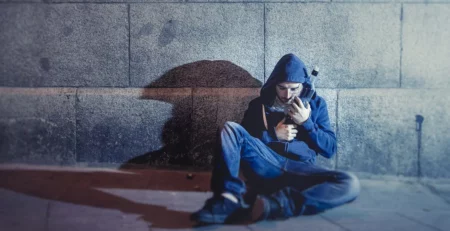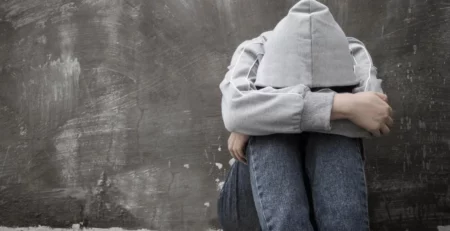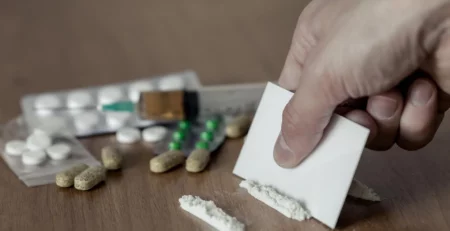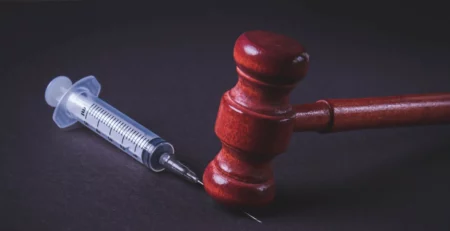How to Explain C PTSD to Someone Who Doesn’t Have It
Holding Meaningful Conversations Around Complex Trauma
Have you ever wondered how to explain C-PTSD to someone who doesn’t have it? Living with complex post-traumatic stress disorder can make you feel isolated and helpless. But most people cannot understand how your experienced traumatic events have shaped your thoughts and feelings. Even your closest friends might say they, too, have experienced trauma.
Statements like that are well-intended but may leave you feeling even more frustrated. PTSD sufferers differ from people who have survived traumatic events but bounced back from them unscathed. That doesn’t diminish their traumas, but it does mean that human beings can respond differently. So, what are the answers and approaches on, ‘How to explain C PTSD to someone who doesn’t have it?’
At Icarus Behavioral Health Nevada, we are experts in helping people with complex PTSD cope with the overwhelming and frequent emotional upheavals that come from living with the disorder. Our Las Vegas facility offers a serene, luxurious location to immerse yourself in therapy. We might be just a few miles from the bright lights of the famous Strip, but we’re the perfect spot to learn how to diminish the impact of traumatic events on your life.
Read on to learn more about how you can explain Complex PTSD symptoms to your family members and friends, and how Icarus in Nevada offers effective, evidence-based support programs if the weight of complex trauma becomes an impediment to health and happiness.
Get Effective Trauma Treatment Options – Reach Out Now!
What Is Complex Post-Traumatic Stress Disorder?
In looking at Complex PTSD symptoms and effects, the impacts of every traumatic event can build up over time. Complex post-traumatic stress disorder comes from repeated exposure to trauma, replaying negative messaging in the mind of the person with it. It also impacts how the person views the world and relates to others.
It’s important to know that C-PTSD can look very similar to borderline personality disorder, with several overlapping symptoms. One disorder does not necessarily cause the other one, although it can.
It can be an extensive, ongoing help before someone can find peace again.
How to Explain C PTSD Causes to Someone Who Doesn’t Have It

The body responds to the presence of PTSD and trauma in many ways – some signs are visible, and others are hidden. If you need to explain c ptsd to someone who doesn’t have it, it can be helpful to know all the key symptoms, even those you don’t experience.
- Childhood abuse: Complex PTSD often starts early in life with childhood abuse. That can be physical abuse or neglect. Either can damage a child’s psyche early in life. It’s also important to note that such a child may not exhibit outward signs that reveal childhood abuse; many keep it inside.
- Car accident: An additional trauma that can worsen C-PTSD is an accident. During an accident, it’s natural to feel helpless, a feeling even worse for someone predisposed to the impacts of trauma. If a severe injury or death occurs during a car accident, the impact can be even more severe. In just a few minutes, someone’s life can change forever.
- Domestic violence: Meeting and falling in love with a bad person who hurts others physically leads to another layer of trauma to the person’s now becoming very complex PTSD. This breach of trust brings persistent sadness, mistrust of others, and other relationship problems. Besides physical harm, domestic violence can also mean a cruel partner cutting them off from their support system.
- Sexual assault: Someone sexually abused as a child or in adulthood will feel the trauma of the sexual abuse forever. In many, it leads to low self-esteem. They may also have increased feelings of general unworthiness.
- War veterans: Our personal experience with veterans is extensive at Icarus Behavioral Health. We are close to Nellis Air Force Base and Creech Air Force Base. The rigors of military life are hard, but so is reintegrating into daily life. We are proud to work with our military members and veterans.
Many events can add to this trauma. From surviving a Category Five hurricane to fleeing a war-torn region, each person has a unique interaction with trauma.
Explaining 5 Common Signs of Complex PTSD to Someone Else

As with the causes, it can be helpful to have a good overview of all the symptoms that someone struggling with complex post-traumatic stress disorder may experience. Here’s a list of some of the most common signs:
1) Emotional Flashbacks and C-PTSD
These very intrusive thoughts can feel like having a nightmare while fully awake. Some see the events replay in slow motion, others in real time. It’s very disconcerting and often interferes with living a typical adult life. The person may seem to lose touch with the present moment and look back at the event as if viewing a movie.
2) Interrupted Sleep Patterns
Many who live with complex PTSD have trouble falling asleep – they may have a more attuned sense to noises or environmental stimuli. Once they fall asleep, they experience difficulty with staying that way. They may have night terrors or even flashbacks while drifting off to sleep. This sleep loss can also intensify the physical signs of fatigue.
3) Trouble Sustaining Faith in the Good of Others
Some with C PTSD lose their faith in everything. They lose faith not only in a religious sense but also in other people. Sometimes, they jump to conclusions, assuming the worst. Even social media posts, such as those on Tik Tok, innocent they may be, can feel like a personal attack. This symptom is most common in people who have been traumatized by people they loved and trusted.
4) Reliance on Alcohol or Drugs to Ease the Pain
A C-PTSD sufferer may turn to drinking alcohol or abusing drugs to numb the pain. Their feelings may be so overwhelming that they self-medicate to mute their overwhelming feelings of sadness or depression.
5) Suicidal Thoughts a Cry for an Immediate Need for Mental Health Help
The worst symptoms is considering or even planning self-harm or even suicide. This is a life-threatening emergency and should indicate the need for an immediate call to 911.
If you or a loved one are contemplating self-harm, please reach out to *988 or 911 for emergency and crisis support!
A Metaphor for Complex PTSD Sufferers That Helps Explain It to Others

Psychology-related terms can confuse people. Even supportive friends who love you may not fully get what C-PTSD sufferers live with day in and day out. And the most well-meaning of spouses and partners can still trigger CPTSD reactions. Why is this the case?
A good metaphor can be a beautiful house starting to deteriorate as a result of extreme weather patterns. Every house is on a foundation – which signifies your early childhood environment and upbringing.
Developing C-PTSD Is Like a House Built on a Shaky Foundation
However, this metaphorical home’s foundation is a little bit unstable because it was built under less-than-optimal conditions. Imagine an earthquake that happened while the masons were setting the foundation blocks.
They checked over the seams, and all looked okay. So they pressed on with the build.
But things were not as they seemed, and tiny cracks had formed, so small that eyes could not see them. Those unseen cracks are like chronic stress, abuse, or neglect.
Ongoing Storms Are Similar to the Traumatic Events
Think about that house on its unstable foundation in a natural disaster. In one single traumatic event or one storm, the home would probably receive a patch-up and feel safe again. But what if it experienced repeated, sometimes unpredicted storms? The stress of a single event would not probably harm the house. However, many repeated storms would continue the deterioration.
When explaining C-PTSD to someone who doesn’t have it, it might mean the person struggling from trauma might pull themselves together and continue to face life. But with each repeated blow, they weaken just a bit more.
Confidential Trauma and PTSD Assessment – Call Now!
The Aftermath of Post-Traumatic Stress Disorder
After these repeated severe weather conditions, the deteriorating foundation might manifest differently. Maybe the window frames are slightly askew, causing the windows to stick. In a person with a developing mental health disorder like C-PTSD, those windows represent changes in how that trauma survivor starts to view the world.
Or, maybe the doors no longer close soundly, letting in even more moisture and leading to further problems. To trauma survivors, the doors might represent closing out those who care about them or failing to open up and discuss their PTSD with those who love them.
And so the house continues to need increasing and evermore complicated repairs.
Long-term Effects of Reliving Traumatic Events
Even after the storm, that house might have increased vulnerabilities. Where its floors were once solid and quiet, they develop squeaks from people walking across them. Those creaks are like the attuned sense of someone with complex PTSD.
The toll of the unsound structure might look just fine to someone visiting the home on a sunny day. But without fully grasping the history of the storms battering the home, they don’t recognize the danger.
The Need for Careful Restoration (Healing After the Traumatic Experience Has Become C-PTSD)

Before this house can be safe and livable again, it must undergo extensive repairs. However, the homeowner cannot reinforce the foundation and fix the walls and roof alone. They must hire professional help to ensure the long, challenging restoration succeeds.
CPTSD develops over time. It requires skilled therapists who serve as an objective third party to lead the person back to a good place. What it doesn’t demand – unsolicited advice from family members and friends who have an opinion on how to fix it.
PTSD, when left untreated, leads to increasingly intrusive thoughts and can become a living nightmare.
The Path to Healing from C PTSD
When you explain C PTSD to someone who doesn’t have it, they will probably want to know about the likely way to heal the trauma. Here are some steps along that journey back to better mental health:
Acknowledging and Awareness of C-PTSD
Recognizing the symptoms of PTSD is the logical starting point. Think back to our metaphorical house – if the homeowners don’t see the cracks in the walls, they cannot get a blueprint drawn up. So, seeing PTSD for what it is means you are taking great steps forward.
Seeking Help for the Problem
It’s critical to get help for the PTSD. A family member or friend is a good ally and can be supportive. But only professional guidance from a licensed counselor or mental health center will heal the trauma for good.
Learning and Applying New Coping Skills Through Therapy

Therapists lead people with PTSD and all the bad feelings that stem from it through intensive, evidence-based programs to learn new coping skills. Through therapy, they will learn to look at the trauma objectively. They will begin to regain self-esteem and feel better about themselves.
Besides individual therapy, they may seek family therapy. PTSD can break down communications or cause the person to push away their loved ones. But here’s some good news – family therapy can help restore those damaged relationships.
Medication and Holistic Therapy for C PTSD
For some with C-PTSD, medication, and holistic therapies are incredibly useful. Prescription medications can help interrupt the panic signals the brain sends to the body, causing so much upheaval.
At the same time, holistic therapies are an effective part of a new daily routine. These can include exercise, journaling, or yoga. There’s not necessarily a right or wrong therapy; your mental health specialists can help you explore several options.
Up To 100% of Rehab Costs Covered By Insurance – Call Now!
Get Effective Support for C PTSD at Icarus in Nevada Today
Now that you know how to explain C PTSD to someone who doesn’t quite get it, here’s our challenge.
Are you going to simply explain C PTSD, or will you seek help? If you’re ready to quiet those racing thoughts and end your struggles, our caring team at Icarus Behavioral Health Nevada is here to help.
Our Las Vegas facility is calm and luxurious. We are in-network with many insurance companies and can even call your insurance provider to get your therapeutic program pre-approved. Let’s connect today – your healing can start as early as tomorrow!













